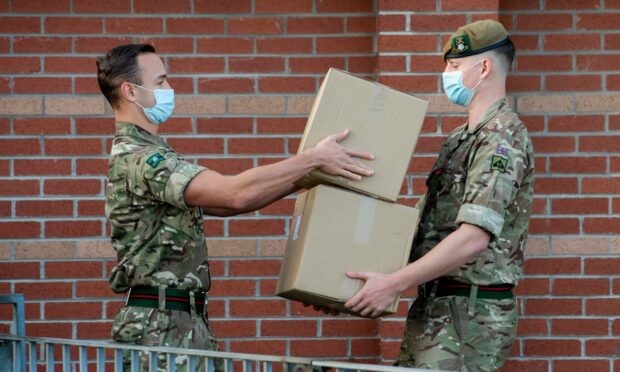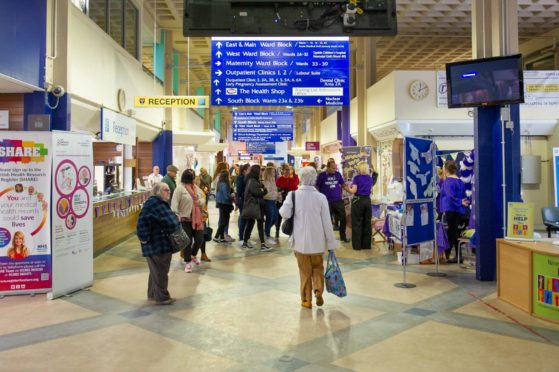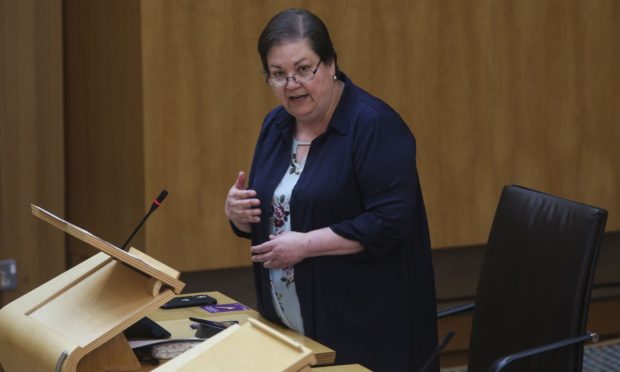Students could be called in to plug staffing gaps across Scotland’s health service and ease pressure in what is predicted to be the “most difficult winter ever” for the NHS, we can reveal.
The Scottish Government wrote to universities at Aberdeen, Dundee, Glasgow and Edinburgh, asking if medical students could work as porters and auxiliary staff.
The fourth and fifth year undergraduates would be paid a wage, the government confirmed.
It comes as 100 members of the armed forces are expected to join the country’s autumn-winter Covid and flu vaccination scheme.
Students were drafted into hospital settings earlier this year during the peak of the second Covid lockdown.
Scottish Labour slammed the latest idea and said “begging” students to plug gaps left in “poor workforce planning” was unsustainable.
Student porters
A letter sent by the Scottish Government, as part of a scoping exercise, asks the country’s medical schools whether they think it would be feasible to ask unqualified trainees to work in professional roles including porter and night observer positions.
Students would be offered “bank rate” if the idea goes ahead, meaning they would be paid the same as an experienced porter or auxiliary.
Similar approaches have been made in Northern Ireland and Wales.
Begging students to come work in hospitals will only get us so far.
– Jackie Baillie MSP
Scottish Labour’s Health spokesperson Jackie Baillie said: “The SNP are desperately scrabbling about trying to fix the mess they’ve made of workforce planning.
“With services already stretched to breaking point, we will no doubt need all the help we can get to cope during winter – but begging students to come work in hospitals will only get us so far.”
She added: “The SNP must come up with a real plan to tackle this crisis, based on fair pay and good working conditions for staff across health and social care.”
The recruitment plan can be revealed as Health Secretary Humza Yousaf announces a further £10 million to help Scotland’s struggling accident and emergency departments.
£10million more for the NHS
Mr Yousaf said the additional cash aims to “ease pressures” in emergency departments and “minimise delays”.
It comes in the wake of waiting time performances in A&E reaching a new record low, with figures published last week showing just 70.9% of patients were seen within the target time of four hours.
Meanwhile, in some areas, patients are being told not to go to A&E unless their condition is “life threatening”.
Army called in
Meanwhile, all 11 mainland health boards are also in line to receive soldiers and forces nursing staff to help deliver jabs.
From Thursday more than 121 Army staff will be enlisted to support the vaccination programme.
Ten soldiers each will vaccinate in Tayside and Highland health boards, while Grampian will received 15 and two nurses.

Fife will receive 10 vaccinators and two nurses, with a nurse headed to Tayside and two to Grampian.
The Scottish Conservatives welcomed the Armed Forces’ commitment, with West Aberdeenshire and Kincardine MP Andrew Bowie saying it would help Grampian following “last week’s dither and delay”.
The health board asked for help from the military on October 18, as pressures relating to the pandemic and a backlog of patients waiting to be seen after lockdown continued to build.
But as late as Tuesday last week, the MoD had still to receive a support request, with First Minister Nicola Sturgeon saying the appeal had to be “refined”.
‘Constructive dialogue’
A Scottish Government spokesperson said: “The Scottish Government maintains an open and constructive dialogue with university partners, as it has done throughout the pandemic.
“Medical students have previously been offered the opportunity to register with their local bank for paid opportunities to work in a hospital setting.
“The Scottish Government recently approached Scottish University medical schools through the Chair of the Board for Academic Medicine in order to explore, whether or not it would be appropriate and useful to ask medical students to further support the health service over the coming months.
“A similar approach was taken in other devolved administrations last year, so is not without precedent.”

